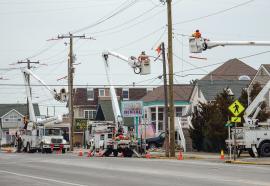Illinois Commerce Commission Accepts ComEd AMI Plan
Submitted by aburr on Wed, 2013-08-07 13:24The Illinois Commerce Commission accepted an annual report filed by Commonwealth Edison Company (ComEd) documenting its efforts to implement its advanced metering infrastructure (AMI) plan, including steps taken by the utility to educate customers on the upcoming deployment of the smart meters. Earlier in June, the commission had approved a revised schedule for installation of 60,000 new meters in ComEd’s service area beginning in the third quarter of 2013.





